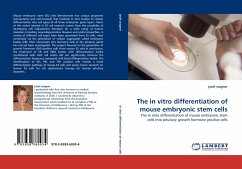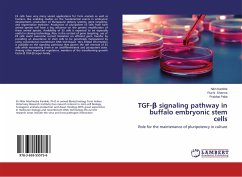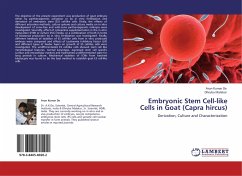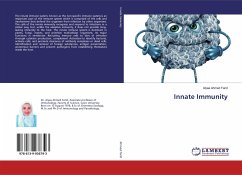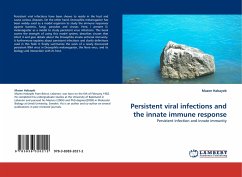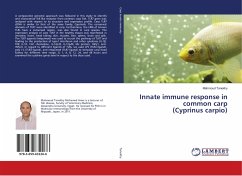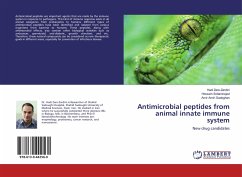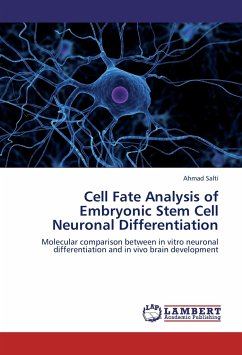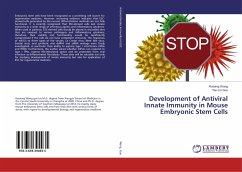
Development of Antiviral Innate Immunity in Mouse Embryonic Stem Cells
Versandkostenfrei!
Versandfertig in 6-10 Tagen
51,99 €
inkl. MwSt.

PAYBACK Punkte
26 °P sammeln!
Embryonic stem cells have been recognized as a promising cell source for regenerative medicine. However, increasing evidence indicates that ESC-derived cells generated by the current differentiation methods are not fully functional. It is recently recognized that ESC-derived cells lack innate immunity to a wide range of infectious agents and inflammatory cytokines. When used in patients, ESC-derived cells would be placed in wounded sites that are exposed to various pathogens and inflammatory cytokines; therefore, their viability and functionality would be significantly compromised if the cells...
Embryonic stem cells have been recognized as a promising cell source for regenerative medicine. However, increasing evidence indicates that ESC-derived cells generated by the current differentiation methods are not fully functional. It is recently recognized that ESC-derived cells lack innate immunity to a wide range of infectious agents and inflammatory cytokines. When used in patients, ESC-derived cells would be placed in wounded sites that are exposed to various pathogens and inflammatory cytokines; therefore, their viability and functionality would be significantly compromised if the cells do not have competent immunity. The responses of mESCs to three types of live viruses, La Crosse virus, West Nile virus, Sendai virus, and synthetic viral dsRNA and ssRNA analogs were firstly investigated, in particular their ability to express type I interferons (IFN and IFNbeta). Furthermore, the author asked whether mESCs can respond to type I IFNs, express IFN-stimulated genes and be protected from viral infection as differentiated fibroblasts. These data will be valuable not only for studying development of innate immunity but also for application of ESC for regenerative medicine.



